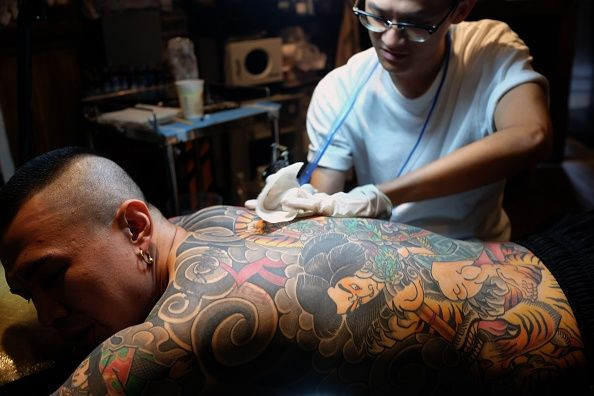Tattoo Ink Recall 2019: FDA Warns Consumers Of Bacteria Contamination That Could Lead To Infection Or Scarring

The U.S. Food and Drug Administration (FDA) has issued a recall for several lots and manufacturers of tattoo ink because they are contaminated with microorganisms. The recall affects consumers considering a new tattoo as well as tattoo artists and retailers of tattoo inks.
The recalled tattoo ink includes all lots of Scalpaink SC, Scalpaink PA, and Scalpaink AL basic black tattoo inks from Scalp Aesthetics as well as Dynamic Color black tattoo ink from Dynamic Color Inc. with the lot codes of 12024090 and 1202609, and Solid Ink-Diablo red tattoo ink from Color Art Inc. (dba Solid Ink) (dba Antone’s Ink) with a lot code of 10.19.18.
The affected tattoo ink has the potential to cause serious injury from bacteria contamination. The recalled tattoo ink could cause infections and lead to serious health issues when injected into the skin during the tattooing procedure, which can increase the risk of infection, the FDA said.
Consumers that receive a tattoo with the recalled ink may have a rash or lesions that consist of red papules in the area of the tattoo. The contaminated ink can also cause permanent scarring from an infection.
According to the FDA, the indication of an infection may be difficult for some consumers to recognize as it may have similar symptoms as an allergic reaction, which could lead to a misdiagnosis and ineffective treatment for the infection. Consumers that have symptoms of an infection or injury from a tattoo should consult their healthcare provider and notify their tattoo artist. They can also report any injury to the FDA’s MedWatch Safety Information and Adverse Event Reporting Program.
Tattoo artists and ink retailers should avoid using or selling the recalled ink. Consumers are urged to ask their tattoo artist or studio if they use the recalled ink. They should avoid tattoos that contain the contaminated ink, which can lead to infection or injury.
The FDA discovered the ink contamination during its FY2018-2019 inspection of tattoo distributors and manufacturers as well as analysis of the tattoo inks and survey results. The FDA identified four manufacturers of six tattoo inks contaminated with bacteria that could be harmful to human health.
© Copyright IBTimes 2024. All rights reserved.





















